 1-800-805-5783
1-800-805-5783 
AI is transforming how we work, live, and interact with technology. But as the ecosystem evolves, it’s essential to understand the nuances between similar-sounding concepts—especially when those differences can determine a project’s success or failure.
One pair that’s often confused: Agentic AI vs. AI Agents.
Agentic AI vs. AI Agents is more than just a technical distinction—it’s strategic. At a glance, these terms seem interchangeable. After all, both involve AI performing tasks. But once you dig deeper, it becomes clear they operate on entirely different levels—with distinct capabilities, limitations, and business implications.
This blog breaks down each term, explaining where they differ, why they matter, and how to choose the right one for your business goals.
An AI agent is a software entity programmed to carry out a specific task or set of functions. It follows predefined rules or algorithms, often reacting to inputs from its environment in a narrow, controlled way. In the context of Agentic AI vs. AI Agents, these tools represent the simpler side of the spectrum.
Think of a chatbot that can answer questions, a scheduling bot that finds open calendar slots, or a data scraper that collects website information. These are AI agents—tools built for a purpose, limited in scope.
Examples of AI Agents in Use:
AI agents are helpful, fast, and efficient, but don’t “think” beyond their programmed scope.
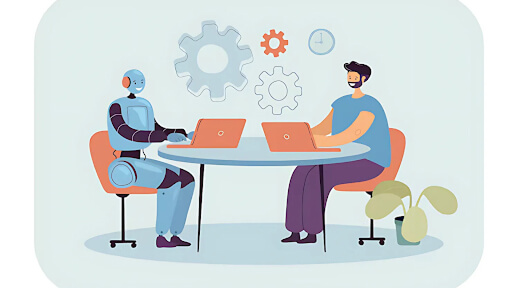
In the landscape of Agentic AI vs. AI Agents, Agentic AI represents a significant leap forward in autonomy and intelligence. Instead of being told exactly what to do, Agentic AI decides what needs to be done, how to do it, and when to pivot or retry—all based on its goals and the environment around it.
It can:
Agentic AI acts more like a junior employee than a static tool. It’s not just executing orders—it’s solving problems and adapting to changing circumstances.
Examples of Agentic AI in Use:
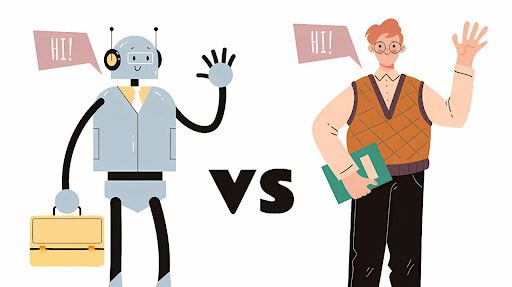
Let’s break down the core differences between these two systems.
Agentic AI vs. AI Agents lies in autonomy and adaptability. AI agents are task-specific—they follow clear instructions and operate within defined parameters. In contrast, Agentic AI can plan, make decisions, and adjust actions based on goals and changing environments.
| Feature | AI Agents | Agentic AI |
| Autonomy | Limited—executes pre-defined tasks | Highly sets and manages goals independently |
| Flexibility | Low—rigid logic, limited scenarios | Highly adaptable to new inputs and failures |
| Task Complexity | Simple, narrow tasks | Multi-step, dynamic workflows |
| Tool Usage | Usually confined to one system | Can choose and switch between tools |
| Learning Capability | Static or rule-based learning | Dynamic—uses memory, feedback, and iteration |
| Initiative | Reactive | Proactive |
| Examples | Chatbots, RPA bots, ML classifiers | AI personal assistants, autonomous research agents |
The decision between AI agents and agentic AI isn’t just about terminology but impact.
AI agents are great for operational efficiency. But you need agentic AI when you want systems that adapt to change, solve open-ended problems, and innovate.
AI agents save time and reduce human effort, but require more manual monitoring. Though costlier upfront, Agentic AI delivers bigger long-term ROI by operating with less supervision and scaling more complex tasks.
If your AI is expected to handle unpredictable scenarios, learn from outcomes, and optimize over time (think: product development, sales outreach, research), Agentic AI offers more power and flexibility.
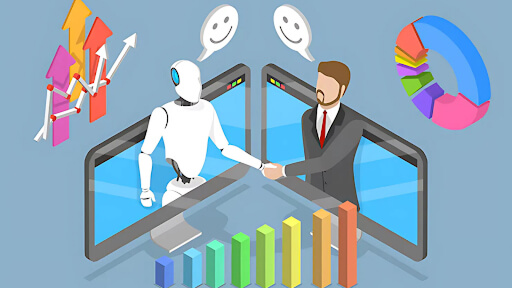
Both types of AI are gaining traction in the Agentic AI vs. AI Agents debate, but Agentic AI is expected to define the next phase of enterprise intelligence.
These stats point to a significant shift: companies want more from AI than just automation—they want strategic, intelligent partners.
That said, both systems can co-exist. A strong tech stack might include AI agents for routine work, and agentic AI for high-value strategic support.
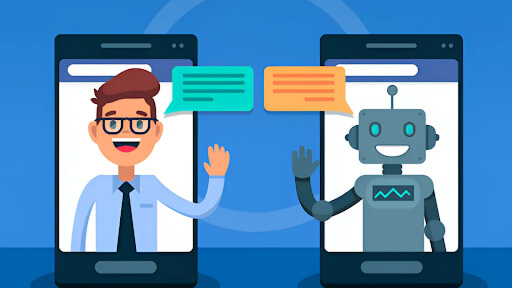
Here’s what this looks like in the real world:
AI Agent: A chatbot on your website answers “Where’s my order?”
Agentic AI: An autonomous customer experience system checks the order status, detects a delay, offers a discount proactively, and schedules a follow-up email—all without you lifting a finger.
AI Agent: A recommendation engine shows products based on browsing history.
Agentic AI: An AI buyer assistant creates a budget-aware wishlist, compares items across platforms, and notifies you when prices drop.
AI Agent: A tool suggests subject lines for an email.
Agentic AI: A system creates the whole campaign, tests versions, optimizes for conversions, and rewrites based on what performs best.
| Scenario | AI Agent | Agentic AI |
| Customer Support | Answer FAQs via chatbot | Manages full support tickets, escalates intelligently, and learns new queries |
| Sales | Sends automated emails from CRM | Develops multi-touch campaigns, adapts messages, and qualifies leads |
| Hiring | Screens resumes based on keywords | Analyzes candidate fit, creates interview questions, and improves over time |
| Software Dev | Code auto-completion | Writes complete modules, debugs, tests, and iterates based on goals |
Start with a simple test:
Most businesses will benefit from a layered approach, where both tools work in tandem:
The future of Agentic AI vs. AI Agents isn’t about choosing one or the other—it’s about designing systems in which AI agents support agentic AI frameworks. Together, they create a layered approach where agents handle execution, and agentic AI provides strategic direction and adaptability.
Imagine a scenario where a product manager has an agentic AI “co-pilot” that:
This isn’t science fiction—it’s what platforms like Cognosys, LangChain, and Devin (from Cognition AI) are building.
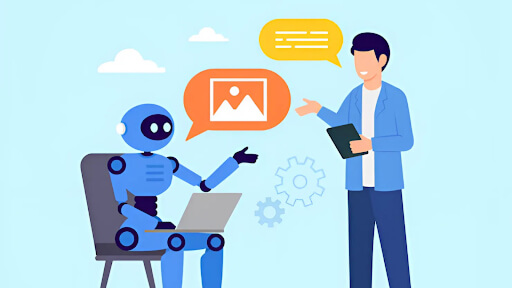
As AI matures, using it isn’t the edge anymore—choosing the right intelligence is. In AI agents vs. agentic AI, AI agents are your digital workforce: dependable, efficient, and built to follow instructions. They shine when the path is clear and the rules are set.
Agentic AI is something more. It’s your autonomous collaborator—creative and strategic, capable of navigating uncertainty and driving outcomes without constant input.
Understanding the difference between Agentic AI vs. AI Agents isn’t just semantics. It’s the line between automating tasks and unlocking transformation.
In a fast-moving world, the winners will not just automate more. They will empower intelligence that acts with intent, adapts with context, and delivers with impact.
1. What is the difference between Agentic AI and AI Agents?
AI agents are task-specific tools that follow rules to complete simple jobs. Agentic AI, on the other hand, can set goals, make decisions, adapt, and manage complex workflows without constant input.
2. When should I use Agentic AI instead of AI agents?
Use Agentic AI when tasks are complex, dynamic, or require decision-making and adaptability. Use AI agents for repetitive, rule-based tasks with clear instructions.
3. Can Agentic AI and AI Agents work together?
Yes. Many businesses use Agentic AI to plan and manage workflows while delegating specific tasks to AI agents. This layered approach balances autonomy with execution.
4. Why does this distinction matter for my business?
Choosing the correct type of AI helps avoid inefficiencies, maximize ROI, and unlock innovation. Agentic AI enables strategic automation, while AI agents streamline basic operations.
At [x]cube LABS, we craft intelligent AI agents that seamlessly integrate with your systems, enhancing efficiency and innovation:
Integrate our Agentic AI solutions to automate tasks, derive actionable insights, and deliver superior customer experiences effortlessly within your existing workflows.
For more information and to schedule a FREE demo, check out all our ready-to-deploy agents here.